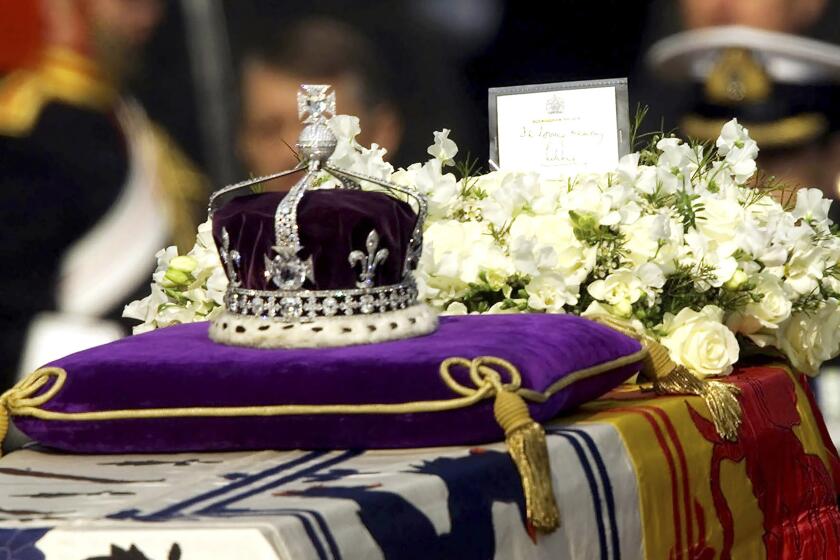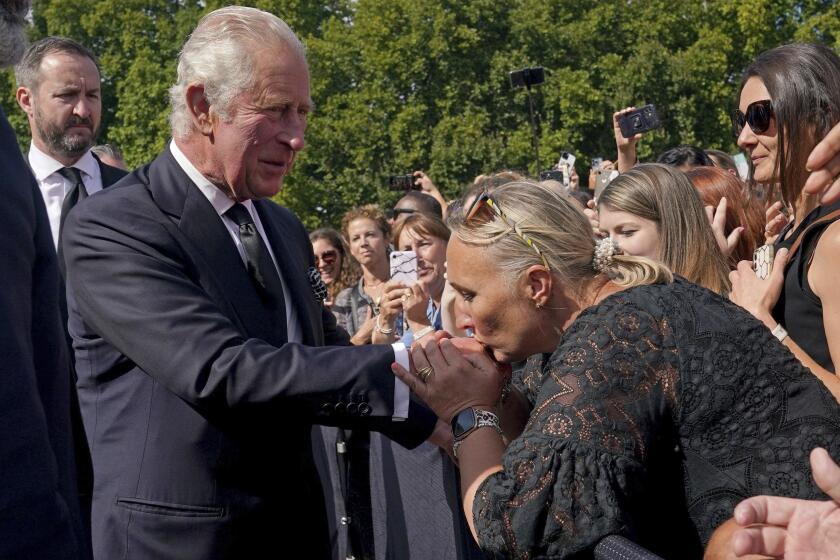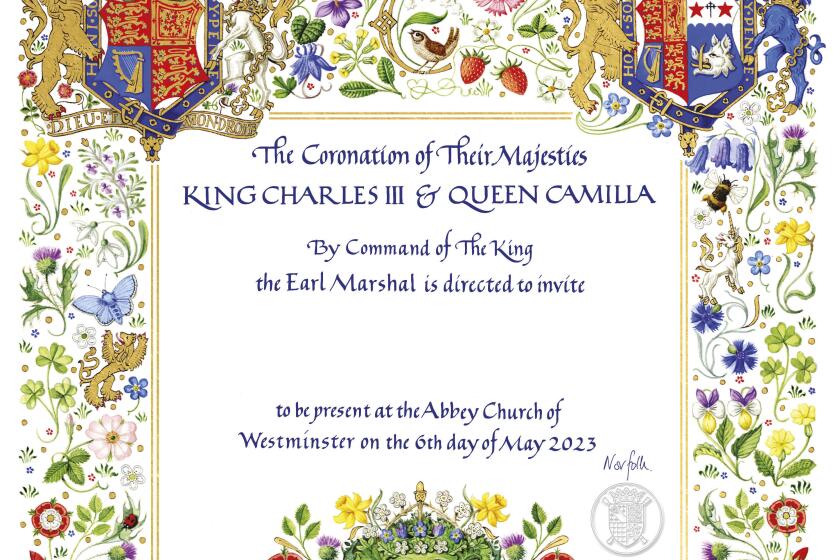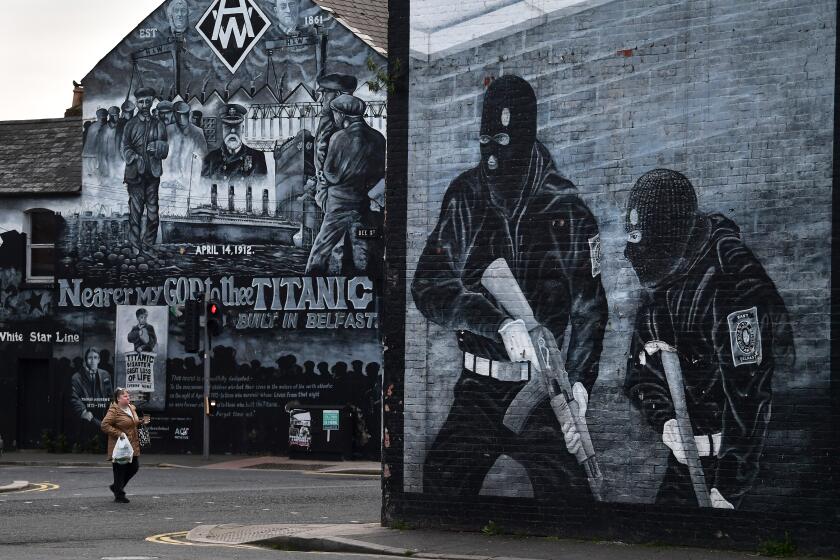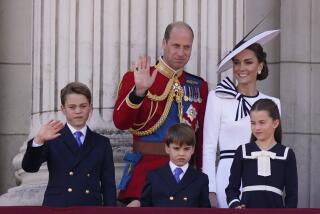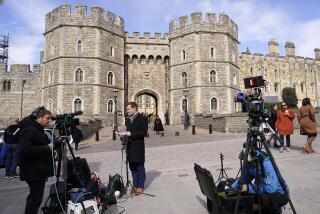Disunited kingdom: Rifts in the realm as King Charles III’s coronation nears
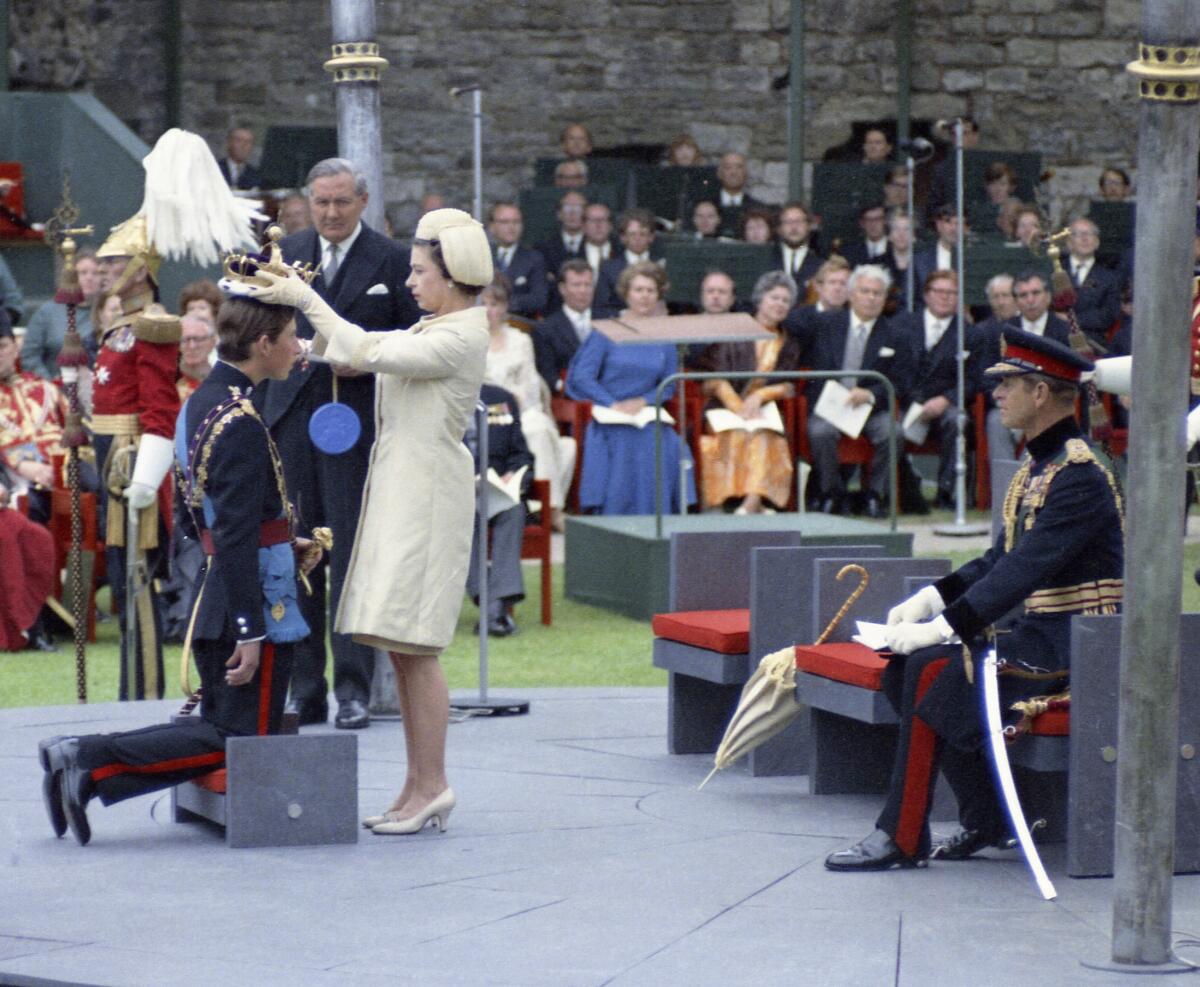
CAERNARFON, Wales — In the shadow of Caernarfon Castle, for centuries a hulking symbol of English imperial power, bookshop proprietor Selwyn Jones was chatting in Welsh with customers and deciding on a window display for Britain’s coming coronation weekend.
The chosen works didn’t center on King Charles III, despite a close local connection to the monarch who is to be symbolically anointed Saturday in London. Charles Philip Arthur George, then a gawky 20-year-old, was crowned Prince of Wales nearly 55 years ago in the crenelated fortress that dominates this pretty Welsh town.
To mark the upcoming occasion, Jones was curating literary works on the Welsh royal line that in effect ended in 1283, when Wales’ prince-in-waiting Dafydd ap Gruffydd was killed on orders of England’s King Edward I. The execution inaugurated the tradition — at the time, intended as a humiliating blow to a conquered populace — of bestowing the title Prince of Wales upon the eldest son of the English king.
“This is the most Welsh town in the universe,” said Jones, pointing to the area’s role in recent years as a center of Welsh-language revival and nationalistic sentiment. “So as far as the coronation goes, there’s a feeling of, well, ambivalence — and that at best.”
As Charles formally ascends the British throne at Westminster Abbey, millions of his compatriots will cheer the continuity of the world’s most famous monarchy, whose storied roots date back a millennium.
The lavish display of pomp and ancient ritual, however, belies a deepening sense of drift and disaffection in corners of a kingdom that consists, as Americans sometimes need to be reminded, not only of England, but also Wales, Scotland and Northern Ireland — all of which have their own complicated takes on the matter.
Or perhaps not so complicated.
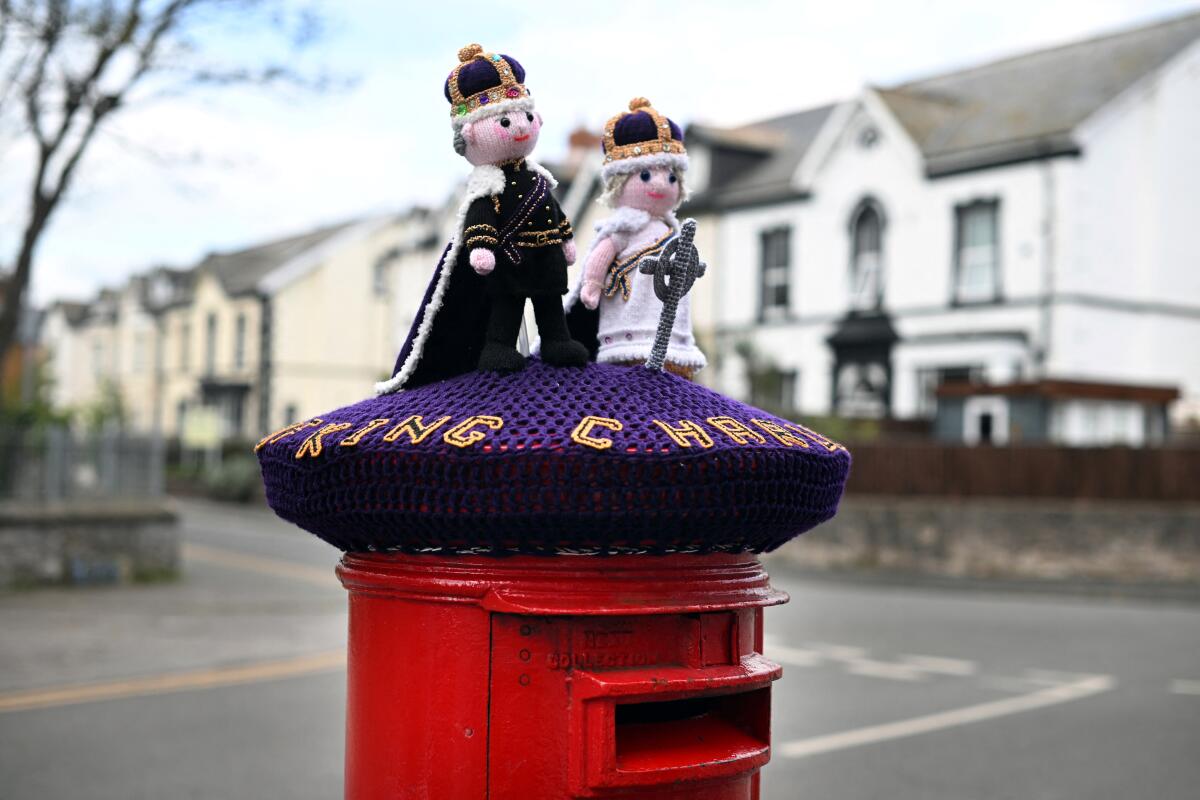
“No, no, no, it means nothing to me, absolutely nothing,” said David Singh, a merchant and native of the Scottish capital, Edinburgh. For decades, he has sold fine Scottish woolens on the city’s famed Royal Mile, just up the street from the Palace of Holyroodhouse, the monarch’s official residence in the city.
Watching the coronation of King Charles III? Here’s what you should know about the crowns, scepters, orbs and more.
Like many in Edinburgh, Singh, who has ancestral roots in India, was abidingly fond of Queen Elizabeth II, who died in September at age 96 at her beloved Balmoral Castle, her Highlands retreat 75 miles to the north. The monarch’s first funerary rites took place in the historic Scottish capital, and thousands lined the rainy route of her cortege to pay respects.
But affection for a stoic, self-effacing sovereign, who was just 25 when she became queen, doesn’t necessarily accrue to Charles.
“I don’t think this king can replace her, ever,” Singh said. “So it can be really hard to see the point of it all.”
A rising tide of anti-royal sentiment thrusts a British throne without Queen Elizabeth into unstable territory.
In the United Kingdom as a whole, the monarchy still enjoys broad if diminishing support. Surveys suggest that overall, around one-third of Britons don’t much care one way or the other about the coronation.
Far from Westminster Abbey or Buckingham Palace, though, that sense of psychological remove is magnified.
“The evidence from polling is that in Scotland, support for the monarchy has been falling quite rapidly in recent years,” said Murray Pittock, a historian and literature professor at the University of Glasgow. “There’s quite a gap growing.”
Outside England, each of the kingdom’s constituent countries has its own reasons for restiveness. Economic hardship is a common thread, with nationalist
sentiment, historical grievance, changing demographics and evolving social mores woven through as well.
Some of the lack of enthusiasm might be attributable to the fact that, at 74, Charles has spent the bulk of his life awaiting the kingly role that passed to him upon Elizabeth’s death. Or to lingering memories of Princess Diana, killed in a 1997 car crash after the incendiary breakup of her marriage to Charles, who at the time was romantically entangled with Camilla, now to be crowned queen.
King Charles III’s wife has been officially identified as ‘Queen Camilla’ for the first time, with the title on the invitation for the coronation.
“I do hope she isn’t rotating in her grave,” said Heather Jones, 55, walking with her 7-year-old grandson in Caernarvon’s cobbled central square, explaining to him the intricacies of hereditary monarchy — “No, I am not as old as the queen who died.”
She recalled her own dismay, as a young woman, over Diana’s demise and the tumultuous circumstances surrounding it. “So my sentiments around Charles are pretty clouded,” she said.
In Wales, polling before Elizabeth’s death pointed to 2-1 support, in principle, for the institution of the monarchy, said Richard Wyn Jones, director of Cardiff University’s Wales Governance Center. But that could erode, perhaps precipitously, he said.
“The caveat is that the queen had particular standing, being there for so long,” he said of Elizabeth’s seven decades on the throne, which made her the longest-serving British sovereign. “It remains to be seen what kind of monarch Charles proves to be.”
Despite the existence of locally empowered government institutions in Scotland, Northern Ireland and Wales, the concentration of clout in London combined with the messy aftermath of the U.K.’s severed ties with the European Union leave many feeling alienated from the celebrations.
Separatist fervor in Scotland, always greater than that in Wales, saw a Brexit-fueled boost after a 2014 independence referendum was voted down 55% to 45%. But breakaway momentum has since slowed amid disarray in the pro-independence Scottish National Party over a financial scandal and the resignation of the country’s leader, Nicola Sturgeon.
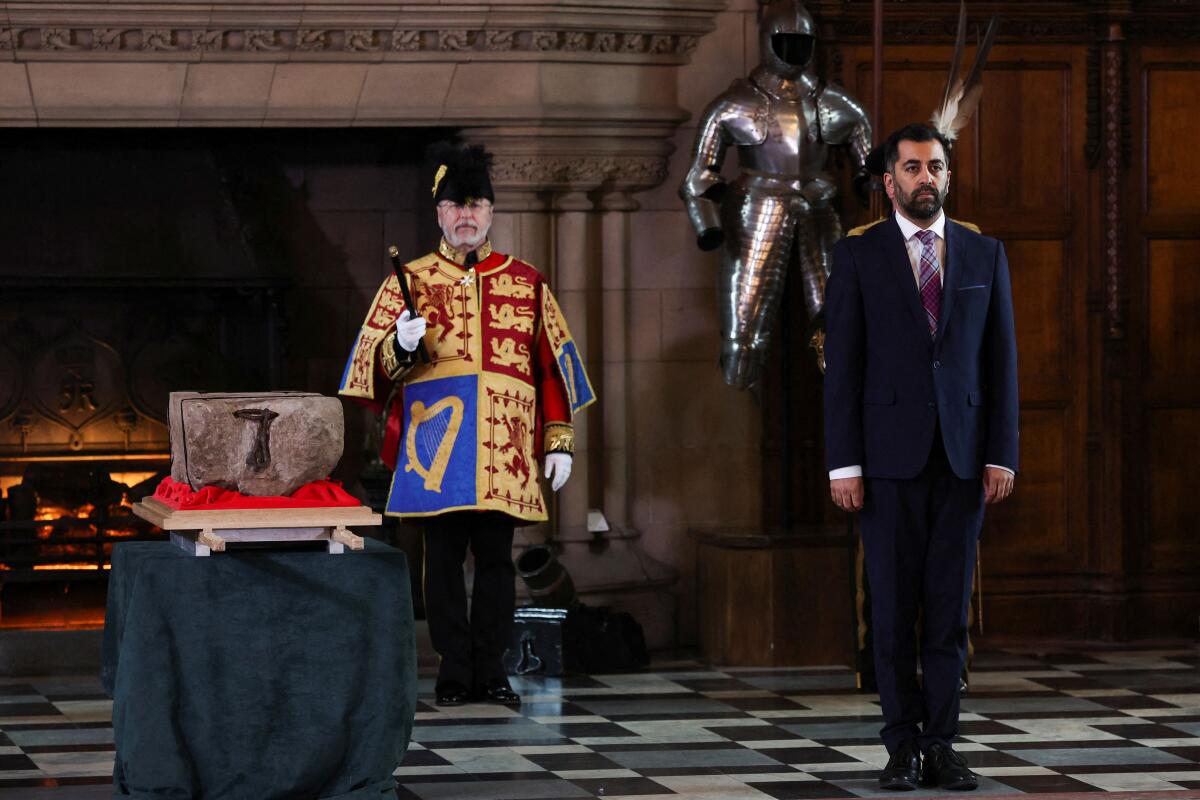
The new first minister of Scotland, Humza Yousaf, has described himself as a republican — the term used in Britain to describe those who do not believe there should be a monarchy — but plans to attend the coronation. So does Northern Ireland’s designated leader, Michelle O’Neill, who represents the Irish nationalist party Sinn Fein.
Northern Ireland wants to move forward. But 25 years after the Good Friday accord celebrated by Clinton and Biden, many are mired in a painful past.
Writing about her decision to attend, O’Neill described herself as dedicated to the longer-term ideal of Irish republicanism, which would involve the North’s unity with the Republic of Ireland, not the U.K.
“We are living in a time of great change. A time to respect our differing and equally legitimate aspirations,” O’Neill said in a statement posted on social media, adding that her attendance reflected the recognition that “there are many people on our island for whom the coronation is a hugely important occasion.”
Unpacking the implications of O’Neill’s decision, the British Broadcasting Corp. noted that Sinn Fein was once considered the political wing of the Irish Republican Army, and that the IRA in 1979 assassinated Louis Mountbatten — Lord Mountbatten — the great-uncle Charles regarded as a surrogate grandfather.
“It says much,” the BBC analysis said, that the prospect of Sinn Fein being represented at the coronation “caused scarcely a mainstream ripple.”
In a nod to the kingdom as a whole, united or not, Saturday’s coronation ceremony for the first time will include a hymn sung in Welsh and in Irish and Scots Gaelic, Buckingham Palace announced in detailing preparations.
That in turn conjures up memories of a gesture by Charles, who, at his 1969 investiture as Prince of Wales — one remembered personally by diminishing numbers of royal subjects, but reprised in the Netflix series “The Crown” — had learned enough Welsh, a notoriously difficult language, to speak it at the ceremony.
But time has worn away any vestiges of awe surrounding the British sovereign, said Wyn Jones, the Cardiff University professor. He remembers being instructed, as a schoolchild, to stand waving along the route of the royal motorcade.
“There was the notion that a fleeting glimpse should be something quite thrilling for us,” he said. “It was quasi-feudal, really, and I can’t see us going back to that.”
More to Read
Sign up for Essential California
The most important California stories and recommendations in your inbox every morning.
You may occasionally receive promotional content from the Los Angeles Times.
